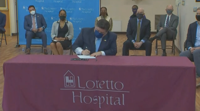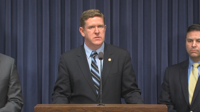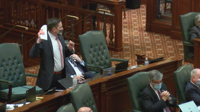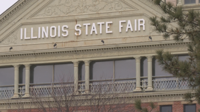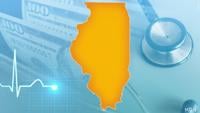SPRINGFIELD, Ill. � The COVID-19 pandemic exposed many inequities in healthcare. In fact, Illinois will now invest $150 million per year in initiatives to support communities most in need of care. This was possible through a bill Gov. JB Pritzker signed into on Friday.
State lawmakers say this plan will help historically underserved communities across the state � from Black and brown neighborhoods in metro areas to small towns in central and southern Illinois. The state will also receive federal matching funds to address underlying health conditions for people relying on safety-net hospitals or critical care centers.
Pritzker says access to good hospitals is a key part of human rights to healthcare. But, he explained people also need access to mental health services, addiction treatment, and diagnostic or preventative services.
“These social determinants are the backbone of whole health,� Pritzker said. “We must demand true wellness for all of our neighbors, for all of Illinois.�
This is personal
Lt. Governor Juliana Stratton echoed Pritzker’s message that healthcare is a right, not a privilege. The topic is personal for Stratton since she learned so much about healthcare services from her father, Dr. Henry Wiggins. She explained the radiologist turns 88 next week and worked in safety-net hospitals throughout his entire life.
“My father often talked about there being a shortage of Black physicians. He noted that too many people were not comfortable, often because they never saw anyone who looked like them or understood their lived experience. These disparities in healthcare don’t just affect Black communities,� Stratton said. “They impact Latino communities, Indigenous communities, and rural communities � any communities, really, that don’t have equity and representation or resources.�
Applications are already available for facilities interested in the first round of funding. You can find the application form . The Illinois Department of Healthcare and Family Services says the application deadline is April 9. However, HFS Director Theresa Eagleson said more funds will be released later this year.
“During a series of listening sessions at the beginning of this process, we heard repeatedly from people in communities just like this one that they wanted to have a voice in creating solutions to the healthcare challenges they face. This ambitious equity-centric plan is the result of their voices,� Eagleson said.
Equity-centric plan
A bipartisan group of legislators started to work on this collaborative care plan 18 months ago. It was clear changes were needed in every community to increase access to hospitals and specialty care centers. House Majority Leader Greg Harris (D-Chicago) led the group in discussions with hospital leaders, unions, and community groups. In this case, he said the law proves Democrats can work with Republicans and service providers to enact change.
“This is one step in a long road that we’re gonna have to reduce the disparities and the inequities that have been shown to us,� Harris added.
House Deputy Republican Leader Tom Demmer applauded the bipartisanship shown throughout the process. The Dixon native also touched upon the aspect of this law that community leaders get the opportunity to choose the best options for their residents.
“This is a community-led process that has to involve input from stakeholders, that incentivizes partnerships from people who are already working in communities to make them better and to make them healthier. It incentivizes people to come together with a shared mission of improving the health in their communities,� Demmer said.
Harris said lawmakers should be happy with this accomplishment. Still, he reminded them they must get back to Springfield to work on more improvements for the future.
Legislators still have the opportunity to make more changes by approving the Legislative Black Caucus healthcare reform package. The sweeping proposal failed to gain enough support during the lame-duck session in January, but members think it has a shot this spring.


